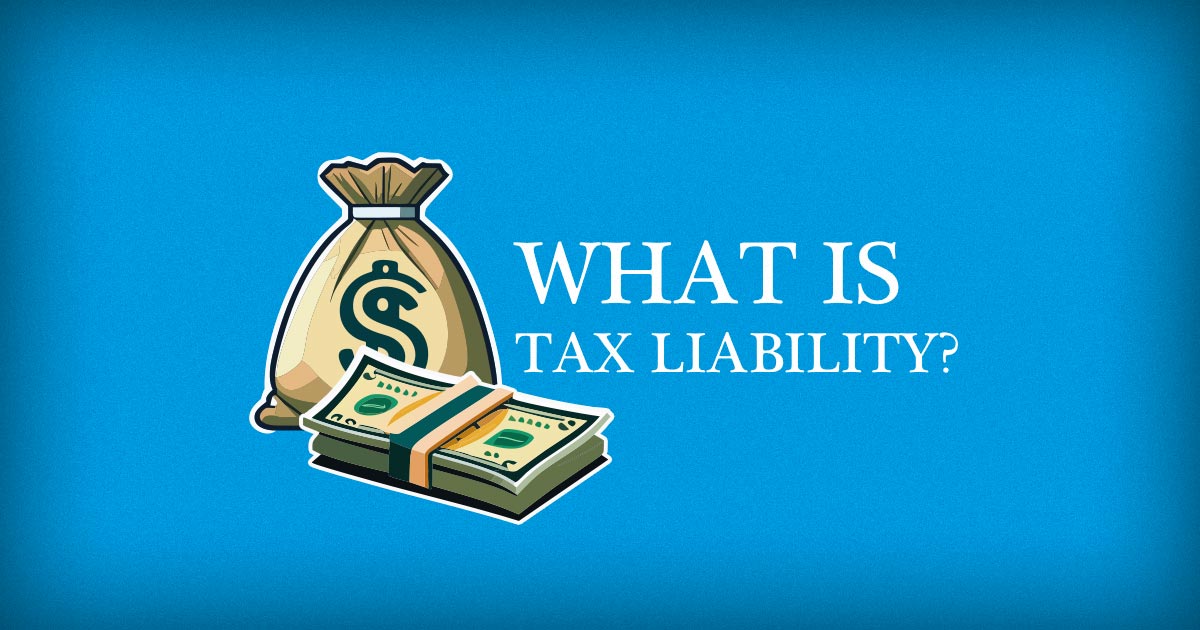What is Tax Liability, and How Is It Calculated?

You’ve undoubtedly heard the phrase “tax liability” and wondered what it meant. Simply expressed, tax liability refers to the entire amount of tax owing to the government by an individual or corporation. It’s the amount of money owing to the “taxman.” Taxes are payable for a variety of reasons, the most prevalent being income.
However, taxes may be required if there is a gain from the sale of an asset, such as a stock or a home. Tax responsibilities include income and capital gains taxes, as well as sales taxes. If you have no tax liability, it usually indicates you owe no taxes for the year. In some situations, if your income is low enough, you may not even be required to submit a tax return, though it is normally recommended.
This article will cover the topic of taxation and how it process work and how it can impact you financially.
How Do Taxes Work?
The tax system is set by various authorities of government including Federal, State, and local. These taxes are used to fund amenities, bearings and troop, such as road repairs, garbage disposal, or police/military forces. It is important to understand which taxes affect you, this is so true with understanding your tax rate. Often, using deductions, exemptions, or credits can pay off and lead to reduced tax payments.
Types of Taxes
Earned income tax is now considered to be one of the most common all over the world. For instance, given the current tax structure, if you are single taxpayer and earn $60,000 per year, you pay 10 percent on the initial $9,875 you earn, twelve percent on the next $40,125, and twenty-two percent on the balance of your earn $60,000 income. This leads to the overall federal tax basis of little less than $9,000 excluding any tax credits or allowable deductions. The above estimate does not factor any state taxes that might be included.
Filing is all the years whereby an individual or a company is due to pay taxes. This means that every year you have missed on paying taxes they form part of the current year tax bill.
In our country, we have what is called sales tax and this is charged whenever you are making a purchase. Some of the charges might be based on the area you live and can include local and or county and or state taxes. For instance, some states even within the same country may have no sales tax; other states may have sales tax. In Canada, within the federal level, consumers are expected to pay for 5% of the sale value in tax often referred to as the GST and provinces add on their own. They can be paid by the business to the tax authorities every month or after every quarter of the financial year.
Capital Gain Taxes
If a taxpayer sells an asset including real estate for as a capital asset he/she is liable to pay capital gains tax for the profit earned. For example, if you bought shares of a particular stock at $10,000 for 100 shares and sold them at $18,000, making a profit of $8,000, then it will be taxable. Capital gains tax rates are not same like those in the income and sales taxes, and depend on how long the property was held before selling it. If held for less than a year, it is treated as a short-term capital gain and is taxed at regular income rates. If kept for longer than a year, it is considered a long-term capital gain and is normally taxed at a reduced rate.
For example, if you sold the shares for a short-term gain and are in the 10% tax rate, you would owe $800 in federal income taxes. This would be filed when doing annual filing of tax returns. If you sold the shares after holding them for a year or more of ownership and the amount of your capital gains was less than $40 400 in the case with an individual, then you would not have to pay taxes on your gains due to the preferential long-term capital gains tax rates.
Reducing Your Liability
Deductions, exemptions, and credits are as such methods that can considerably reduce your taxes. This could lead to a tax minus sign depending on the circumstances; it indicates that you over- paid your tax for the specific year and therefore are owed back some money.
The Bottom Line
Someone has to learn the requirements of taxes, for individuals and business companies alike. Recalling all taxes and their rates help in maintaining the financial stability and solvency of organizations. When it comes to taxes, it is very important to remember that by using various methods, the overall amount of taxes that you pay can be actually reduced. There is often an allowance for ordinary expenses, and people have several choices throughout the taxation procedures.
If unsure about anything, it’s advisable to seek legal tax counsel from a licensed tax practitioner. It is reputable and can give you sound advice on how to pay reduced taxes. Note that state sales tax can also be different in the United States and the tax legislation you will characterize depends on the state where you are going to live. Hence, the rates differ slightly depending on your filing status, for instance, single, married filing separately or as head of household. If you are still not sure how to do it, there are automated programs which will help you to make the calculation, or you can turn to a specialist.

Senior Writer • Business and Information Trends Writer
Lucas writes long-form, investigative articles that explore the deeper implications of business and information advancements.

